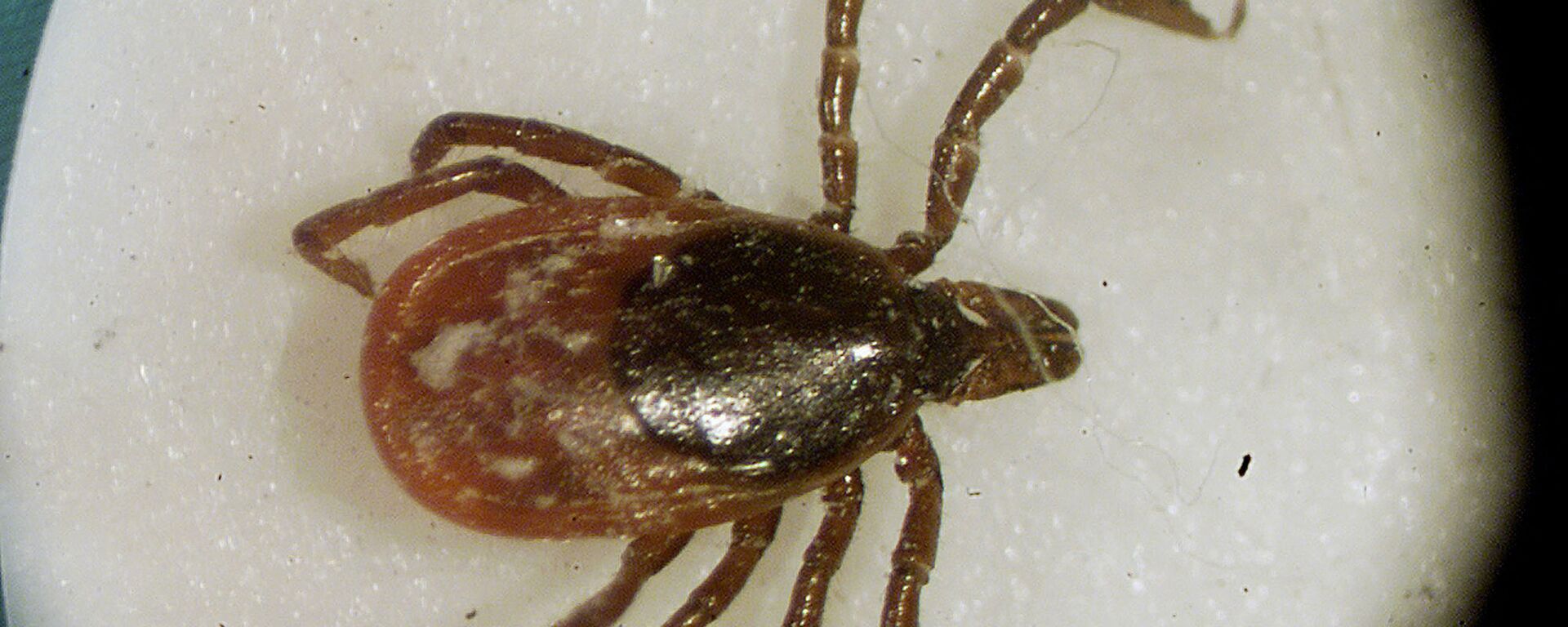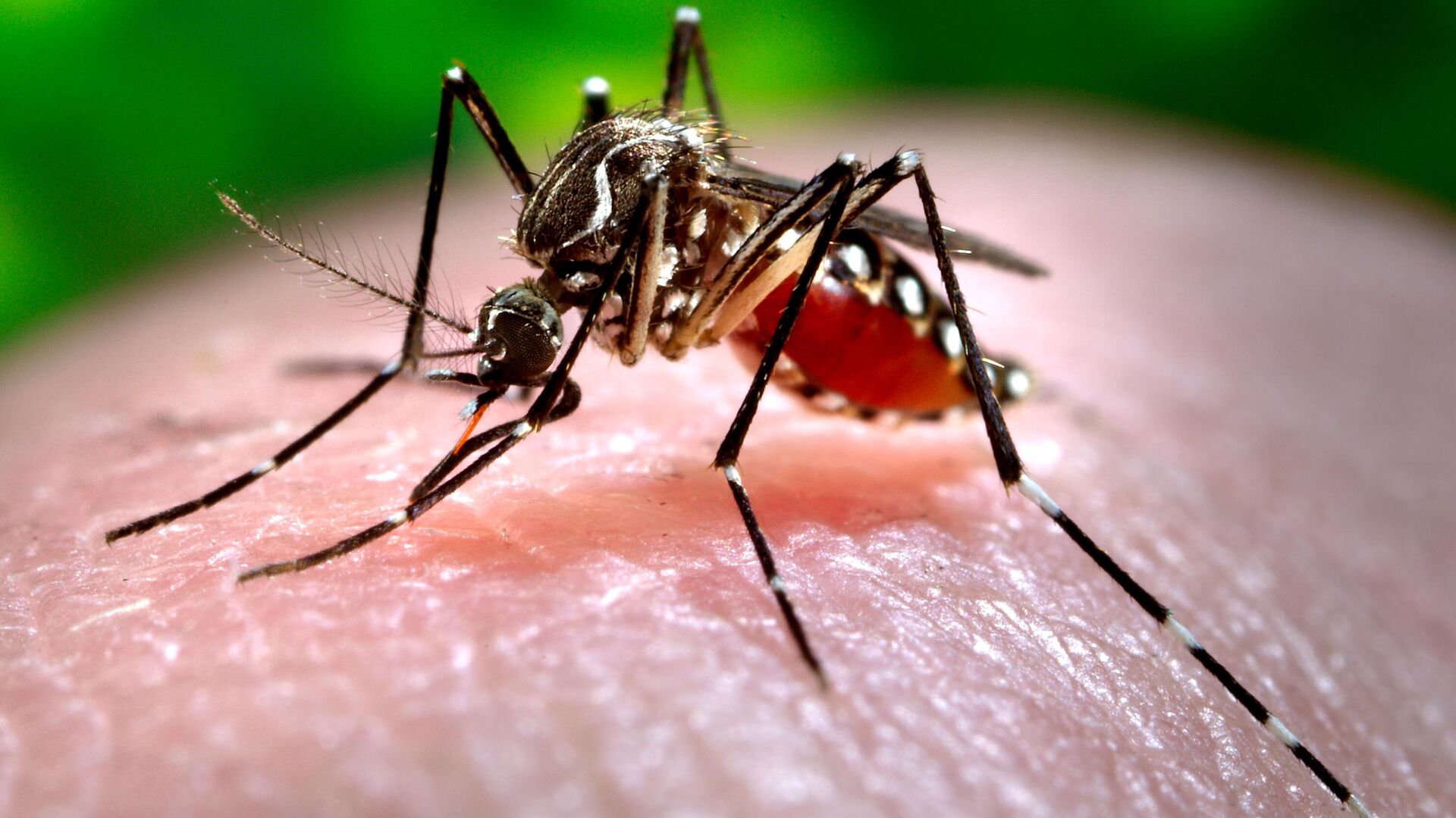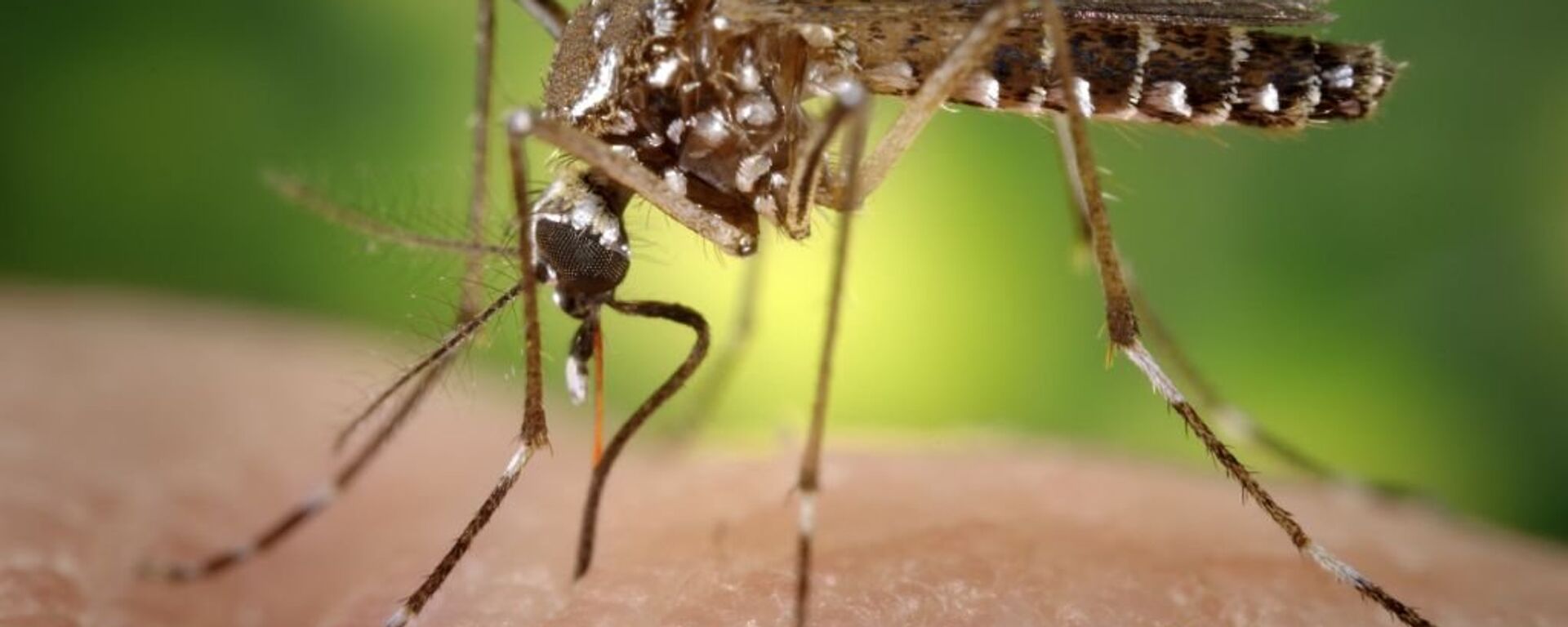https://sputnikglobe.com/20231216/us-lacks-preparedness-for-tick-mosquito-borne-diseases-1115631668.html
US Lacks Preparedness for Tick, Mosquito-Borne Diseases
US Lacks Preparedness for Tick, Mosquito-Borne Diseases
Sputnik International
According to a recent report, during that workshop global public health experts warned that some countries, including the US, are not prepared for the risk of arboviral threats.
2023-12-16T23:00+0000
2023-12-16T23:00+0000
2023-12-16T23:00+0000
americas
health
world health organization (who)
mosquito
ticks
disease
healthcare
us healthcare crisis
preventive healthcare
us
https://cdn1.img.sputnikglobe.com/img/07e7/01/0e/1106324012_0:190:2967:1858_1920x0_80_0_0_5b026ef6c3982d23f3690538d8045fda.jpg
This past week a public health preparedness workshop was held at the National Academies of Science, Engineering and Medicine in Washington, D.C. According to a recent report, during that workshop global public health experts warned that some countries, including the US, are not prepared for the risk of arboviral threats—viruses spread by ticks, mosquitos and other arthropods which lead to diseases.Some of these diseases can cause serious health issues including those which are chronic, fatal and/or can even lead to birth defects. And while it's true that some of these diseases—particularly those caused by mosquitoes—do not often occur in the US, they are beginning to. Thanks to globalization and an increasingly warmer planet, the arboviral threats will become more commonplace in the US, especially as the country is doing seemingly little to mitigate the risk.Ticks and mosquitoes are not only a nuisance to deal with for those who enjoy their time outdoors, they also carry a variety of diseases which can be transmitted to humans and pets. According to the US Environmental Protection Agency, diseases that mosquitoes carry with them include: Zika, West Nile virus, malaria, yellow fever, dengue fever, and the chikungunya virus. Meanwhile, tick-borne diseases include: Lyme disease, Rocky Mountain Spotted Fever, ehrlichiosis, and encephalitis.This year alone, the US saw locally transmitted cases of malaria in the state of Florida—a first in 20 years. Cases of locally transmitted dengue fever were also reported in the states of Florida and Texas this past year; the disease has broken out across the western hemisphere in an unprecedented way as climate change expands the habitat of dengue-carrying mosquitoes.The World Health Organization (WHO) also issued a warning this fall that dengue fever is on the verge of becoming endemic in parts of the US, Europe, and Africa within the next decade, as more than 4 million cases have been reported throughout the Americas and Caribbean alone so far this year.And leishmaniasis, a skin disease spread by sand flies, was once considered a tropical disease one can "only" get while traveling, but began to spread at low levels in the southern US this year. To further compile this list would be to mention the Zika virus outbreak that occurred in Florida and Texas in 2015 and 2016. According to Dr. Sadie Ryan, the co-director of the Florida Climate Institute at the University of Florida, it’s a matter of when, not if, future outbreaks spread to larger regions across the US.But the US’s ability to track insects is at half the capacity it was nearly 100 years ago. There are just sixteen state entomologists in the country who are working to control insect populations and malaria. Scientists have also added that the US is still unprepared for outbreaks and are urging for preparations to avoid the same missteps made during the COVID-19 pandemic and the 2016 Zika outbreak, even as they work to produce new medicines. In the meantime, experts recommended emulating Singapore: a country that has cut its number of mosquitoes by cleaning up city environments and teaching mosquito-controlling practices to citizens beginning at a young age. Restrictions are also placed on Singapore residents who will find themselves being fined or jailed for harboring mosquito breeding sites at home.And yesterday, a report was made that the private companies of Orbit Services Partners Inc., and Verily have partnered for a project to release mosquitos across the Caribbean bred with a bacterium that blocks the dengue virus.
https://sputnikglobe.com/20220220/high-rate-of-ticks-infected-with-rare-virus-potentially-lethal-for-humans-found-lurking-in-us-park-1093198914.html
https://sputnikglobe.com/20230521/smelly-turn-off-for-some-is-magnet-for-mosquitoes-study-shows-1110502751.html
americas
Sputnik International
feedback@sputniknews.com
+74956456601
MIA „Rossiya Segodnya“
2023
News
en_EN
Sputnik International
feedback@sputniknews.com
+74956456601
MIA „Rossiya Segodnya“
Sputnik International
feedback@sputniknews.com
+74956456601
MIA „Rossiya Segodnya“
illness, epidemic, viruses, diseases, ticks, mosquitoes, who, health, diseases in the us, american healthcare system, american health care system, healthcare crisis, preventive healthcare, mosquito-borne diseases, tick-borne diseases
illness, epidemic, viruses, diseases, ticks, mosquitoes, who, health, diseases in the us, american healthcare system, american health care system, healthcare crisis, preventive healthcare, mosquito-borne diseases, tick-borne diseases
US Lacks Preparedness for Tick, Mosquito-Borne Diseases
"We don't pay enough attention in the United States to what is going on in other countries. We just kind of watch it spread and we don't prepare ourselves for that virus potentially coming to the U.S.," said Laura Kramer, director of the Arbovirus Laboratory at State University of New York at Albany.
This past week a public health preparedness
workshop was held at the National Academies of Science, Engineering and Medicine in Washington, D.C. According to a recent
report, during that workshop global public health experts warned that some countries, including the US, are not prepared for the risk of arboviral threats—viruses spread by ticks, mosquitos and other arthropods which lead to diseases.
Some of these diseases can cause serious health issues including those which are chronic, fatal and/or can even lead to birth defects. And while it's true that some of these diseases—particularly those caused by mosquitoes—do not often occur in the US, they are beginning to. Thanks to globalization and an increasingly warmer planet, the arboviral threats will become more commonplace in the US, especially as the country is doing seemingly little to mitigate the risk.
"If we don't do anything, which is basically what we're doing right now, it's going to get worse," Tom Scott, a medical entomologist and professor emeritus at UC Davis, said during the workshop. "The damage from inaction is enormous, it's unacceptable. It's unethical."

20 February 2022, 11:01 GMT
Ticks and mosquitoes are not only a nuisance to deal with for those who enjoy their time outdoors, they also carry a variety of diseases which can be transmitted to humans and pets. According to the US Environmental Protection Agency, diseases that mosquitoes carry with them include: Zika, West Nile virus, malaria, yellow fever, dengue fever, and the chikungunya virus. Meanwhile, tick-borne diseases include: Lyme disease, Rocky Mountain Spotted Fever, ehrlichiosis, and encephalitis.
This year alone, the US saw locally transmitted cases of
malaria in the state of Florida—a first in 20 years. Cases of locally transmitted dengue fever were also reported in the states of Florida and Texas this past year; the disease has broken out across the western hemisphere in an unprecedented way as climate change expands the habitat of dengue-carrying mosquitoes.
The World Health Organization (WHO) also issued a warning this fall that dengue fever is on the verge of becoming endemic in parts of the US, Europe, and Africa within the next decade, as more than 4 million cases have been reported throughout the Americas and Caribbean alone so far this year. And leishmaniasis, a skin disease spread by sand flies, was once considered a tropical disease one can "only" get while traveling, but began to spread at low levels in the southern US this year. To further compile this list would be to mention the Zika virus outbreak that occurred in Florida and Texas in 2015 and 2016.
According to Dr. Sadie Ryan, the co-director of the Florida Climate Institute at the University of Florida, it’s a matter of when, not if, future outbreaks spread to larger regions across the US. "We don't pay enough attention in the United States to what is going on in other countries. We just kind of watch it spread and we don't prepare ourselves for that virus potentially coming to the U.S.," said Laura Kramer, director of the Arbovirus Laboratory at State University of New York at Albany, during the workshop. "That happened with Zika, chikungunya and West Nile."
But the US’s ability to track insects is at half the capacity it was nearly 100 years ago. There are just sixteen state entomologists in the country who are working to control insect populations and malaria.
Scientists have also added that the US is still unprepared for outbreaks and are urging for preparations to avoid the same missteps made during the COVID-19 pandemic and the 2016 Zika outbreak, even as they work to produce new medicines.
“The fact is, we’re not really ready,” said Dr. Peter Hotez, dean of the National School of Tropical Medicine at Baylor College of Medicine and co-director of the Texas Children’s Hospital Center for Vaccine Development. “Our local health departments are very spotty with their ability to do mosquito control and to even try to diagnose these viruses and mosquitoes.”
In the meantime,
experts recommended emulating Singapore: a country that has cut its number of mosquitoes by cleaning up city environments and teaching mosquito-controlling practices to citizens beginning at a young age. Restrictions are also placed on Singapore residents who will find themselves being fined or jailed for harboring mosquito breeding sites at home.
And
yesterday, a report was made that the private companies of Orbit Services Partners Inc., and Verily have partnered for a project to release mosquitos across the Caribbean bred with a bacterium that blocks the dengue virus.




